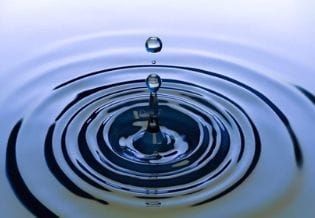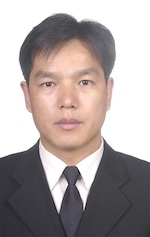About Journal of Water
An international open-access platform advancing hydrological science, aquatic ecosystem research, and sustainable water resource management through rigorous peer review and global collaboration.
JW's mission is to accelerate the dissemination of high-quality water science research that informs policy, guides practice, and inspires innovation. We champion interdisciplinary collaboration, recognizing that water challenges cannot be solved through siloed approaches. By bridging hydrology, marine science, environmental chemistry, ecology, and engineering, JW fosters holistic understanding of water systems.
Our editorial philosophy prioritizes scientific rigor, methodological transparency, and practical relevance. Every manuscript undergoes thorough peer review by subject experts who evaluate experimental design, data quality, analytical methods, and reproducibility. We maintain strict ethical standards aligned with the Committee on Publication Ethics (COPE) guidelines, ensuring integrity in authorship, data reporting, and conflict of interest disclosure.
As an open-access journal, JW operates under the Creative Commons Attribution (CC BY 4.0) license, enabling unrestricted use, distribution, and adaptation of published work with proper attribution. This commitment to open science maximizes research impact and democratizes access to critical water knowledge.
JW welcomes original research, comprehensive reviews, short communications, case studies, technical notes, and other scholarly contributions covering the full spectrum of water science. Our scope encompasses physical, chemical, biological, and social dimensions of water systems across spatial scales from molecular to global.
Precipitation, evapotranspiration, surface runoff, infiltration, groundwater recharge, water cycle dynamics, watershed hydrology, and climate-water interactions.
Freshwater and marine biodiversity, ecosystem services, habitat restoration, wetland ecology, river basin management, and coastal zone processes.
Chemical, physical, and biological water quality assessment, pollution source identification, contaminant transport, analytical methods, and sensor technologies.
Nutrient cycling, carbon dynamics, sediment transport, geochemical processes, isotope hydrology, and aquatic geochemistry.
Municipal and industrial wastewater treatment, drinking water purification, advanced oxidation processes, membrane technologies, and resource recovery.
Integrated water resources management (IWRM), sustainable water allocation, drought planning, flood management, and policy frameworks.
Oceanography, coastal processes, marine pollution, ocean acidification, sea level dynamics, and marine biogeochemistry.
Climate change impacts on water resources, hydrological modeling, extreme events, adaptation strategies, and climate-hydrology feedbacks.
JW offers researchers a comprehensive publishing partnership built on speed, transparency, and global visibility. Our streamlined editorial workflow minimizes time from submission to publication while maintaining rigorous quality standards.
- Rapid Peer Review: Average time to first decision is 21 days, ensuring timely dissemination of your research findings.
- Fast Publication: Articles are published within 10 days of acceptance and typically within 60 days of submission.
- Global Visibility: Open access ensures unrestricted readership, maximizing citation potential and research impact across disciplines and borders.
- Expert Editorial Board: International board members bring specialized expertise in hydrology, marine science, environmental chemistry, and water management.
- Comprehensive Quality Assurance: Plagiarism screening, methodological review, statistical validation, and ethics compliance checks protect research integrity.
- Author Support: Responsive editorial assistance throughout submission, review, revision, and production phases.
- Flexible Article Types: Original Research Articles, Systematic Reviews & Meta-Analyses, Review Articles, Methods & Protocols, Technical Advances, Short Communications, Case Studies, Data Descriptors, Technical Notes, Perspectives & Opinions, Opinion Pieces & Commentaries, and Letters to Editor are all welcomed.
- Interdisciplinary Platform: Bridge traditional disciplinary boundaries to address complex water challenges holistically.
- Policy Impact: Research reaches decision-makers in government, NGOs, and international organizations shaping water policy.
JW's editorial board comprises distinguished researchers from leading institutions worldwide, ensuring diverse perspectives and specialized expertise across water science disciplines. Our board members guide manuscript evaluation, maintain publication standards, and champion innovative research directions.
JW maintains a streamlined submission workflow designed for researcher convenience. Authors submit manuscripts through the Online Manuscript Submission System or via email to [email protected]. Live support is available through the "Chat with Us" button on the journal website.
Manuscripts should follow this structure for optimal clarity and consistency:
- Title (concise and descriptive)
- Authors, Affiliations, and Email Addresses
- Abstract (200-300 words summarizing objectives, methods, results, conclusions)
- Introduction (context, research gap, objectives)
- Materials and Methods (detailed methodology enabling reproducibility)
- Results and Discussion (data presentation, interpretation, comparison with literature)
- Conclusions (key findings, implications, future directions)
- Acknowledgments (optional)
- References (formatted according to journal style)
Detailed formatting requirements, citation style, figure specifications, and supplementary material guidelines are available in the Instructions for Authors.
JW operates on an Article Processing Charge (APC) model to sustain open-access publishing infrastructure. APCs support peer review management, professional copyediting, production quality assurance, digital hosting, DOI registration, and perpetual free access for readers worldwide.
APC rates, payment options, and waiver policies are detailed on the APC Information Page. Financial hardship should never prevent publication of quality research - contact the editorial office to discuss waiver eligibility.
Researchers consistently praise JW's professionalism, responsiveness, and efficiency. Our commitment to supporting authors throughout the publication journey creates positive experiences that encourage repeat submissions.
"I cannot say enough about how good my experience working with OAP was. Submission is easy, and responses from the editorial staff respond promptly and professionally. The entire process from submission to PDF was completed in weeks rather than months."
"My experience was very positive working with OAP. My manuscript review was very thorough and I appreciated the attention to detail. I would recommend submitting a manuscript."


